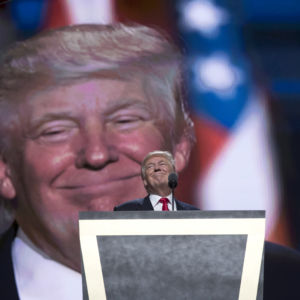The 2016 elections were a political tsunami that produced a populist billionaire president, a Republican Congress, 33 Republican governors and a like number of state legislatures. These results offer conservatives a golden opportunity to shape political decisions from Maine to Arizona and set the nation on a far different course than has been followed under the ultra-progressive philosophy of President Obama.
Is the conservative movement up to the challenge? Let us consider the essential elements that make up a successful political movement.
(1) A political movement must have a relevant philosophy. It is a given that conservatives of all stripes honor the Constitution and its established system of checks and balances. They agree that government should be limited, individuals should be free and responsible in their freedom, and there can be no lasting liberty without virtue, public and private.
These are quintessentially American ideas, rooted in the founding of the republic and still endorsed by a large majority of the American people. Gallup, Pew and other national polls report that when given a choice, a decisive majority of Americans still favor limited government over Big Brother, free enterprise over socialism, individual freedom over collectivism, traditional American values over post-modernism, and peace through strength rather than U.N. resolutions and peacekeepers.
(2) A political movement must have a national constituency united behind a common philosophy. Conservatives are not ideological but idealistic. They are individualistic but respond to the communitarian impulse in a crisis. Conservatives come together when the times require it and the right leadership appears — as with Robert A. Taft in the 1950s, Barry Goldwater in the 1960s, Ronald Reagan in the 1970s and 1980s, New Gingrich in the 1990s, and George W. Bush in the 2000s following the 9/11 terrorist attacks. The sharp debates that occur among the different strains of conservatism are a sign of vitality, not decline.
(3) A political movement must have a sound financial base. Thanks to technical proficiency and political success, the number of conservative donors has grown exponentially from a few thousand in the 1950s to many millions today. The fiscal strength of conservative organizations, led by the Heritage Foundation and Heritage Action, is impressive. The assets of leading center-right foundations is more than $10 billion, not including the multi-billion-dollar wealth of the Koch brothers, generous benefactors of conservative as well as libertarian causes.
(4) A political movement must be media-savvy, familiar with and expert in the latest mass communications techniques. Conservatives have adapted to the Age of the Internet, spreading the good news of freedom via Facebook, Twitter, YouTube and a hundred blogs with an occasional glance back at the Age of Gutenberg. Herein a paradox: Conservatives have characterized the media as The Enemy for decades, yet conservatives dominate cable news (e.g., Bill O’Reilly), talk radio (e.g., Rush Limbaugh), syndicated newspaper columns (e.g., Cal Thomas), non-fiction best-sellers (e.g., Mark Levin), and direct mail (e.g., fundraiser guru Richard Viguerie, who has mailed 2 billion letters in his remarkable 50-year career).
(5) A political movement must have charismatic, principled leadership. Conservatives have been blessed to have been led by extraordinary men and women for six decades. They include Taft, Goldwater, Reagan, Gingrich, Phyllis Schlafly, William F. Buckley Jr., Ed Meese, Milton Friedman, Jack Kemp and a phalanx of others.
There are many rising and already visible political stars in the conservative firmament such as Mike Pence, Ted Cruz, Ben Sasse, Paul Ryan, Jim Jordan, Scott Walker and Susana Martinez. With the right leadership, the friction that often erupts in the conservative movement will fade and disappear as they did when Taft, Goldwater, Reagan and Gingrich were the acknowledged leaders of conservatism.
But what has sustained conservatives for six decades and more is not their numbers or their organizational skill or their use of the media or their fund-raising prowess or even their attractive leaders. It’s the power of their ideas — linked by the priceless principle of ordered liberty — and their application to the problems of the day.
More than a half-century ago, Ronald Reagan posed a nation-defining question:
“This is the issue. … Whether we believe in our capacity for self-government or whether we abandon the American Revolution and confess that a little intellectual elite in a far-distant capital can plan our lives for us better than we can plan them ourselves.”
For conservatives, the choice is clear and never clearer than right now with a president-elect who says he wants to make America great again. What better way than to apply the principles that made American great in the first place?

